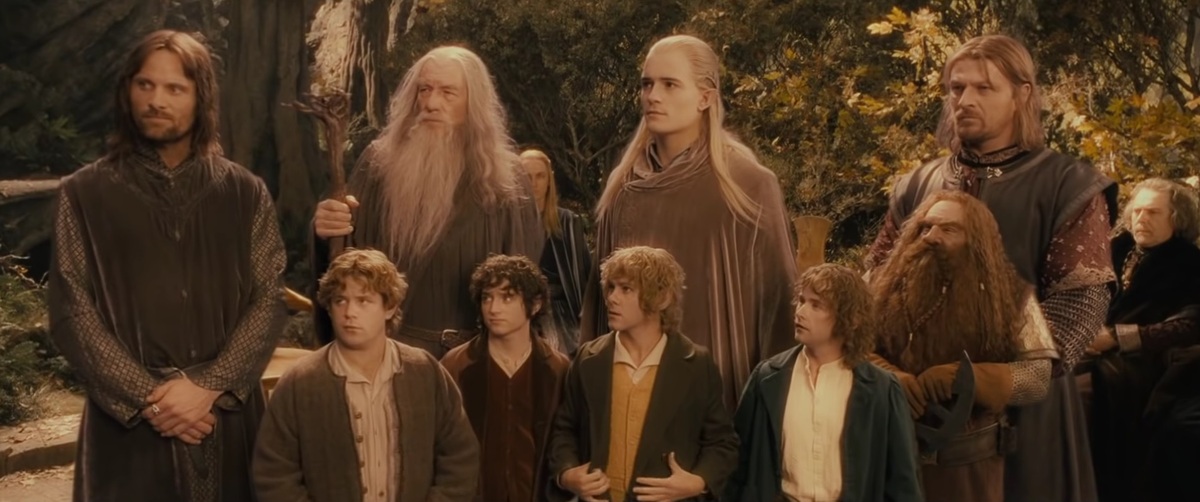Times are dark. There’s no getting past that. The news is frankly, terrifying, and everywhere you turn someone is arguing and angry about something. It’s tough. But … that’s when we look to stories for hope. For the promise that this is all indeed a passing shadow.
For good reason lately, I’ve grown tired of the Wars in the Stars and the Throne Games and even marvelous cinematic universe when it comes to escapist fantasy and I’ve been thinking back further to The Lord of the Rings. Today is John Ronald Reuel Tolkien’s 128th (that would be twelvety-eighth) birthday, and so I want to take some time to talk about the biggest theme of his work: hope in the face of darkness.
Tolkien was born in South Africa in 1892 and lost his father at the age of three when he moved with his mother to back to England. His mother died when he was twelve. He married the love of his life, Edith (his Luthien) in 1916, and then served in World War I, then saw those horrors repeated in World War II. He was someone who had seen his share of darkness and death at a young age.
But he created a world. Based on his love of constructed languages and what he felt was a need for British myths. He wasn’t the first fantasy author, but his work set the stage for most high fantasy to come and endures with us, not just because of epic battles and magical creatures but because Tolkien’s work was, at its core, about how a small person can make a difference.
The Hobbit and The Lord of the Rings are about unlikely heroes. It’s about the small, ordinary folk who make a difference just by being good and true and I think that’s something we need right now. In a time of Avengers and Palpatine and Skywalkers, the original mega-franchise was all about how anyone could be a hero and how there was hope in that, even in the darkest times.
We can’t talk about the Lord of the Rings without talking about Peter Jackson’s amazing film trilogy (we will, however, gloss over the less amazing Hobbit films). I could write about how they succeeded where Star Wars failed because they had a clear plan or how they set the stage for the franchise world we live in, but today, on Tolkien day, I want to talk about the moment that encompasses the entire trilogy and maybe even why we need fantasy and stories in general: Sam’s speech at the end of The Two Towers.
This speech is … everything. It’s based on a passage of Tolkien’s own, where he muses: “I expect they had lots of chances, like us, of turning back, only they didn’t. And if they had, we shouldn’t know, because they’d have been forgotten. We hear about those as just went on…” And sometimes that’s what heroes do, in the darkest moments, they keep going because that’s what’s right.
The world is dark, but that’s when we have to hold on to stories and to hope. That’s when we have to remember the good worth fighting for, and what better day than Tolkien day to do that?
We live in hard times and we wish we didn’t but, to quote a different film in the trilogy: “So do all who live to see such times. But that is not for them to decide. All we have to decide is what to do with the time that is given to us.”
(Image: Newline Cinema)
Want more stories like this? Become a subscriber and support the site!
—The Mary Sue has a strict comment policy that forbids, but is not limited to, personal insults toward anyone, hate speech, and trolling.—










Published: Jan 3, 2020 01:04 pm